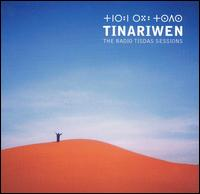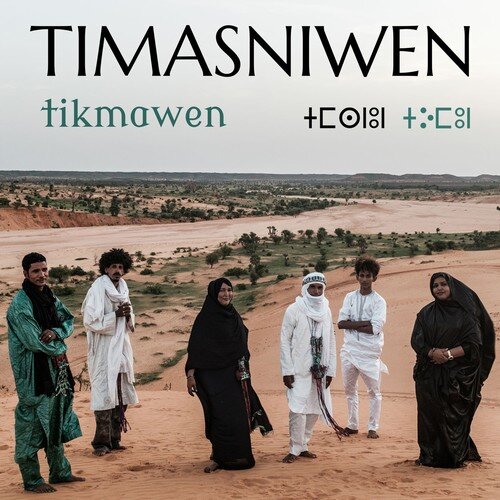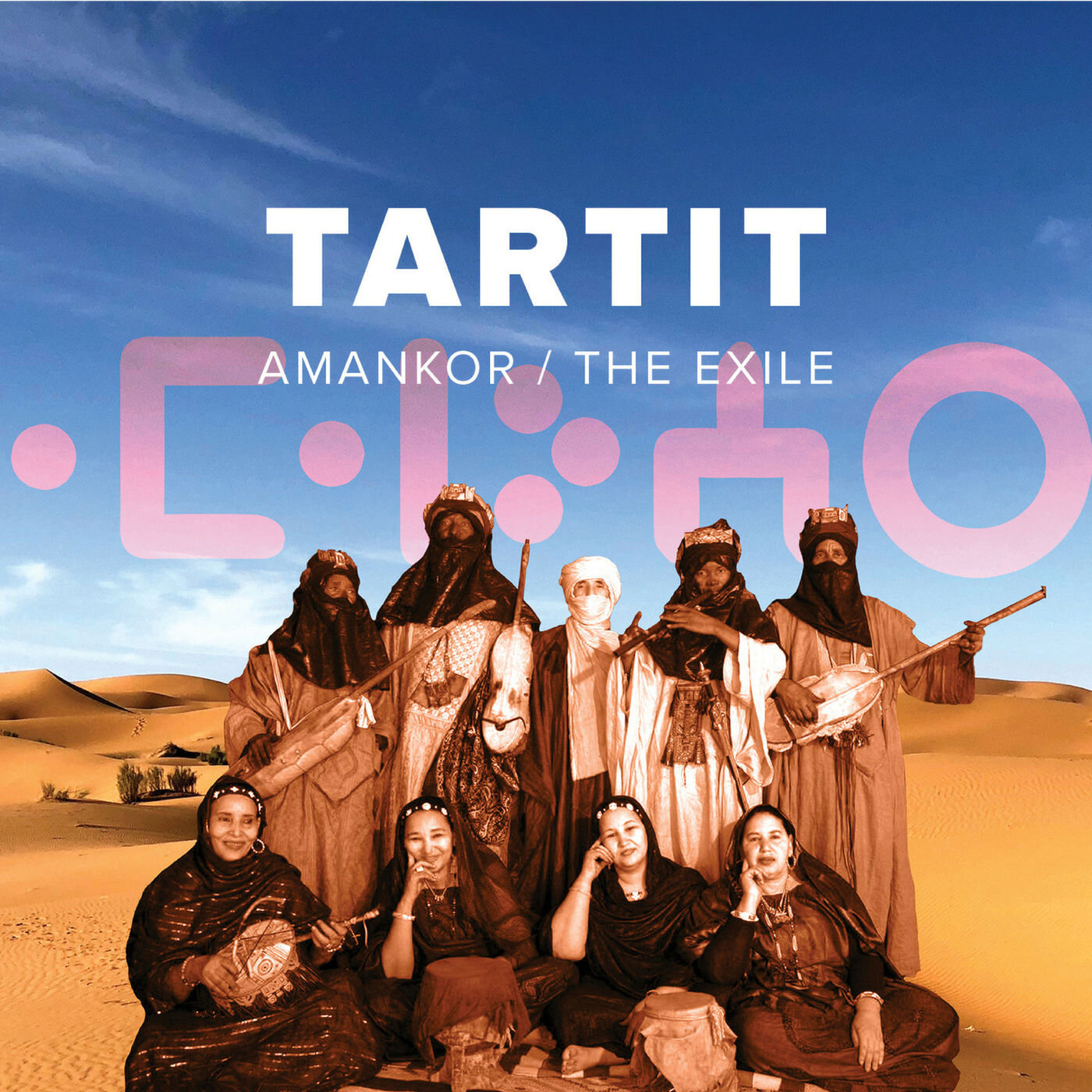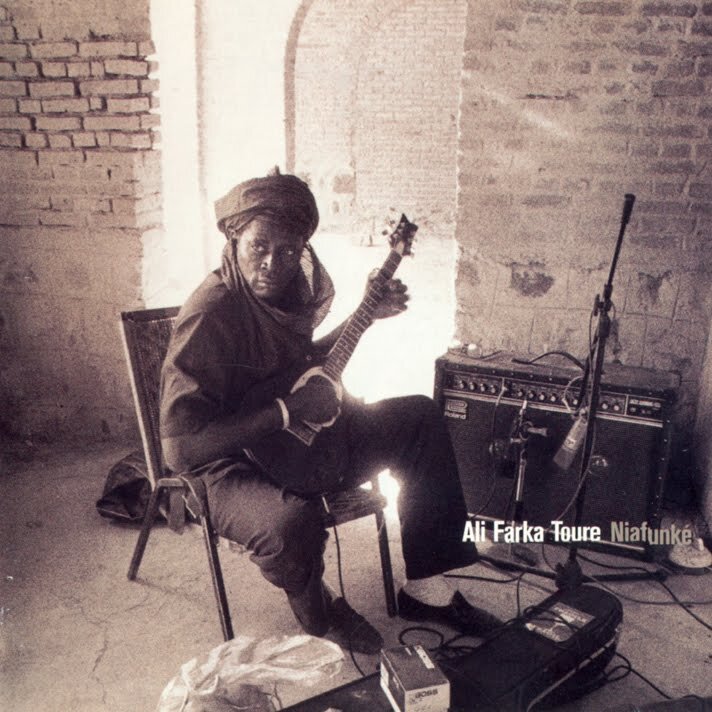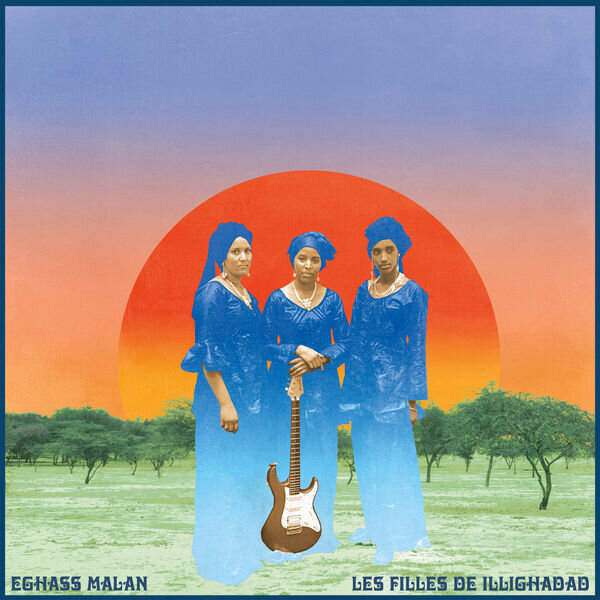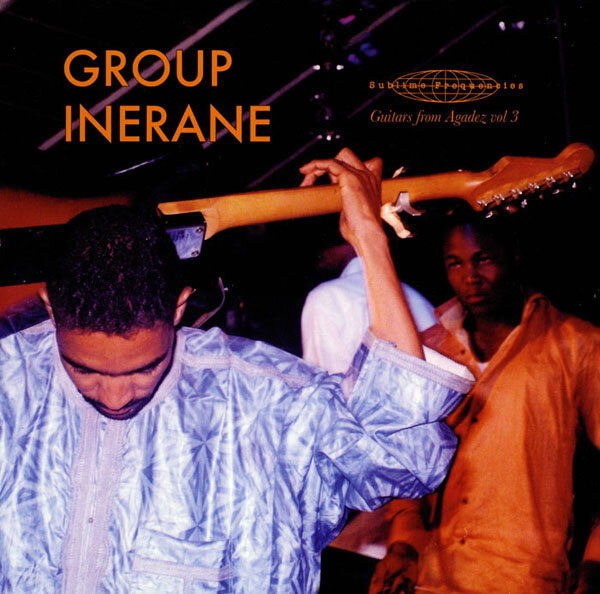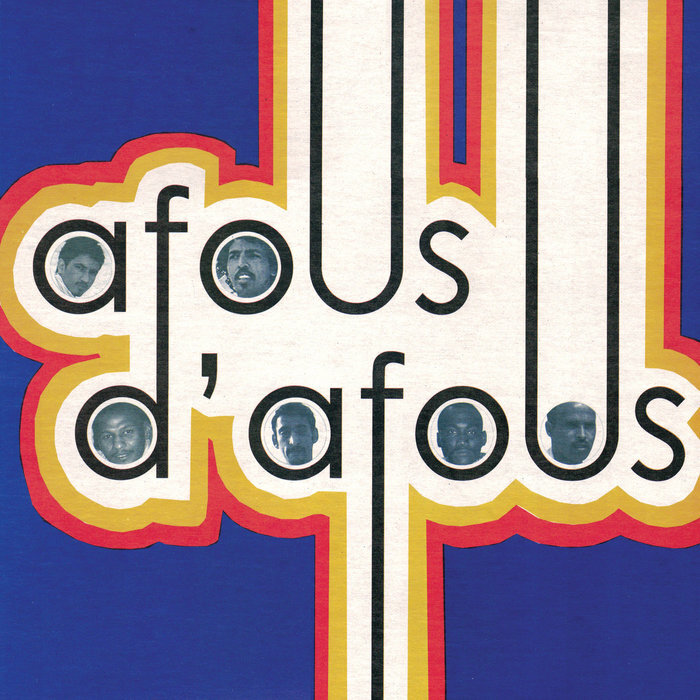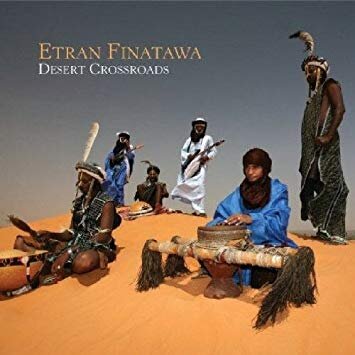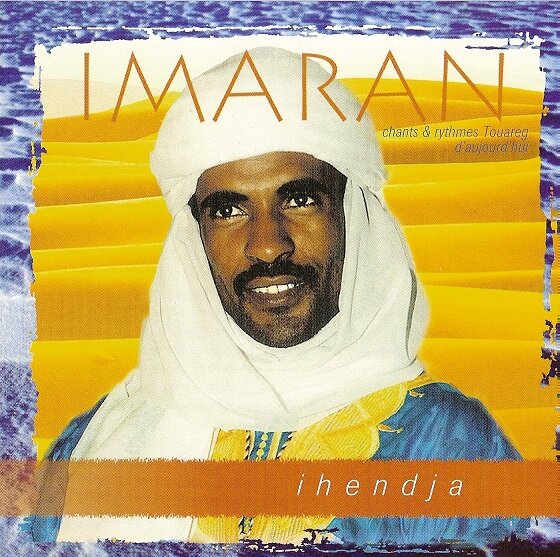As if 2019 releases from Mdou Moctar and Tinariwen weren’t enough, earlier this year, Tartit released the long-awaited follow-up to their 2006 album ‘Abacabok'.
According to Last.fm:
“The Ensemble Tartit are Malian Tamashek (Tuareg), comprising five women and four men. Tartit means 'union' in their language. They met in a refugee camp in Burkina Faso, where their music was a means of survival against the social and political mayhem in the Sahara Desert.”
Worldmusic.net says:
”Originally created to safeguard the Tuareg traditional music which was slowing disappearing, Tartit’s members all originated from the Timbuktu region and formed the group whilst in exile between Mauritanian and Burkinabe refugee camps in the mid-90s during the Tuareg uprising. Fast forward a quarter of a century, and with the help of friends and aid agencies the band have played all around the world at many of the biggest world music festivals in Europe, North America & beyond, and have achieved iconic status as guardians of Tuareg music. With their traditional instrumentation and repertoire their music speaks directly to the issues of today, seeking to preserve a culture under attack.”
The group formed in exile from their homeland in the mid 1990’s (hence the album title) but used their music not only as a way to preserve their identity and heritage but to protest the injustices rocking their homeland. Tuareg music is born out of political unrest and that sense of urgency permeates almost of all of it, regardless of the performer. Though many of the songs here are slower tempos than someone like Mdou Moctar, the same sense of urgency is no less present.
The same swirling, droning, psychedelic desert blues guitar patterns are present but what’s immediately striking is the female vocals which helps distinguish Tartit from their other Tuareg counterparts. While other Tuareg groups have women sing with them, few others give women the lead. This, of course, is in keeping with the group’s name, which means ‘Unity,” or “Union.”
The group was founded with the idea of preserving Tuareg music and instruments and as such, Tartit take a somewhat more traditional approach than some of their counterparts. Playing instruments like the tende (Tuareg hand drum), teherdent (three-string ngoni), imzad (a type of violin made from calabash wood), and the wooden flute, Tartit don’t rely on electric guitar and solos the way many other Tuareg acts do. Instead, the songs hold you with their focus on the repeated patterns and call and response vocals.
This may initially seem to bring a more laid-back feel, as if these songs originated around a campfire and that’s where they belong. But the same driving rhythms and chant-like vocals remind us that this is music created by nomadic people to help find home in the journey. They express joy and anger, even in or because of exile. Accentuated by call and response vocals and insistent hand-clapping beats, the mesmerizing and often complex repeated rhythms take center stage with vocals weaving in and out of and around the percussion. The group brings joy to our struggles.
Watch the EPK for Amankor, including interviews with Fadimata "Disco'' Walet Oumar and live footage, filmed in Bamako, studio Akan 2018.



